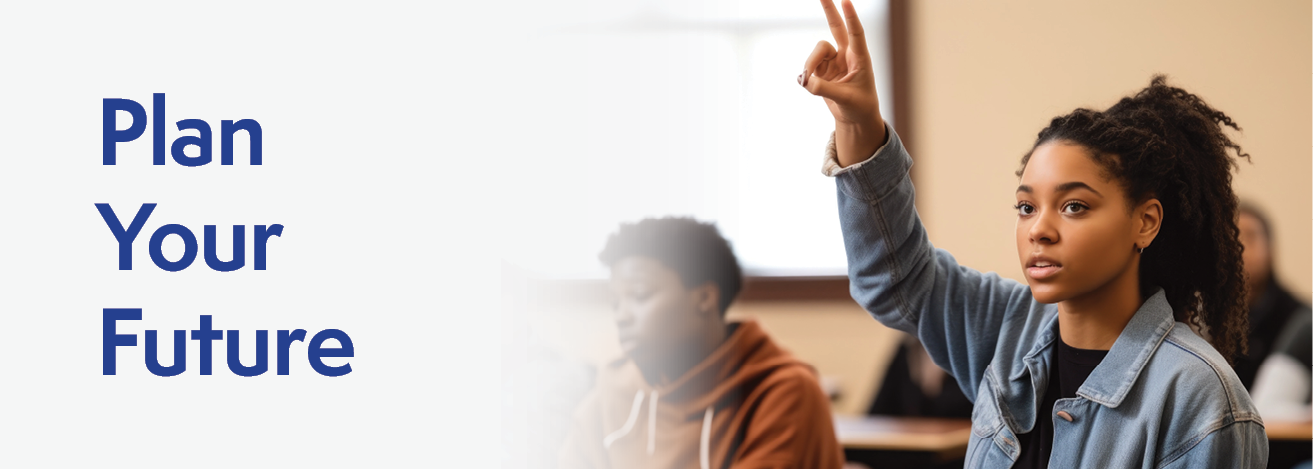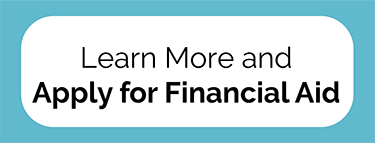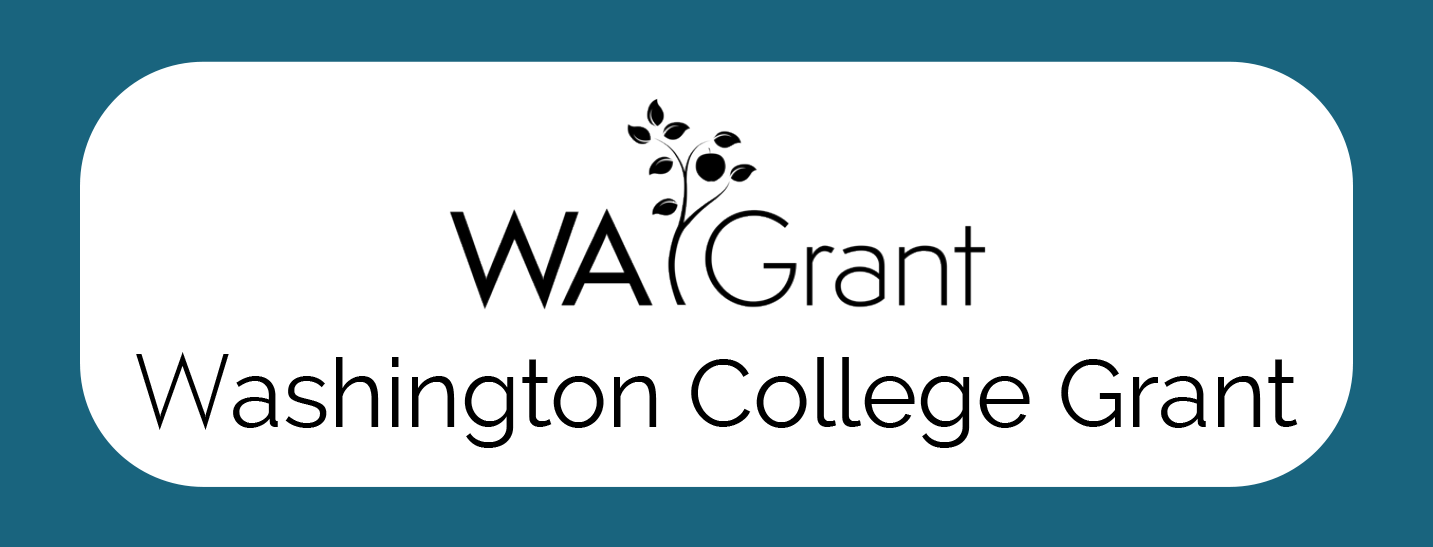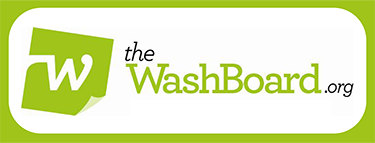Your future awaits
Want more money and more options? Get more education beyond high school.
- Start planning your college or career pathway today! Washington has many options and supports to help you get the education or training you need.
- Financial aid and scholarships are available to help manage costs.
- You can get support! Talk to someone in your local college admissions office, a counselor at your high school, or a mentor in your community about your choices and goals.
Learn more and access related resources in the tabs below.
Did you know? People who get career training or have a college degree:
- Live longer, healthier lives.
- Are more likely to stay employed.
- Are more likely to enjoy their work.
- Can change careers more easily.
- Earn around $1 million more over their career than high school graduates.
Start planning your college or career pathway today
- Explore potential career options and the educational pathways to get you there.
- Consider Washington's public and private four year colleges and community and technical colleges.
- Look into apprenticeships, where you can earn money while learning a trade.
- Learn how national service opportunities can advance your education, as well as your career.
Career exploration
Career exploration
The type and level of education you might need varies depending on the job or career you're interested in.
- Washington Career Bridge: Find detailed information on careers, including wages, job trends, and requirements.
- GetMyFuture - US Department of Labor: Explore careers, education needed, and how to find jobs.
College
College
Washington offers outstanding public and private college options.
- Every college is different. Keep track of each college's requirements, and make sure you meet deadlines for applications and related materials.
- Start working on application essays early. Senior year is a busy time! Starting essays now is a great way for juniors to prepare for college applications.
- Reach out to your counselor and teachers for help gathering application materials, including forms, test scores, transcripts, and letters of recommendation.
- Washington state community and technical colleges (CTCs) offer a wide variety of programs. CTCs are typically open to anyone who has a high school diploma or GED. Students can train to enter into a job directly, complete the first two years of a bachelor's degree and then transfer, or pursue applied bachelor's degrees for specific career fields.
- Search for a Washington community or technical college based on location and programs of study.
- Contact your local community or technical college. Ask about certificate and degree options for careers you're interested in.
- Most Washington colleges no longer require high school seniors to take standardized tests like the SAT or ACT. Check with each college directly for the latest admissions information.
- Do a virtual campus visit to check out colleges.
Apprenticeship
Apprenticeship
Looking to step right into a good-paying job? In an apprenticeship, you can earn money while learning a trade.
- Use the Career Connect Washington Directory to find a career exploration, preparation, or on-the-job learning opportunity near you.
- Explore Apprenticeship: Learn more about apprenticeships in Washington, and why on-the-job learning might be right for you.
- Find an Apprenticeship Program: Search for an apprenticeship program by county and occupation, by name, or by employer on the LNI website.
- The Washington College Grant (WA Grant) provides financial aid to cover costs associated with select approved apprenticeship programs.
National service
National service
You can serve your country and community, learn new skills, and get support for your education.
- U.S. Military: Discover how the Military’s many paths and service commitments can offer a flexible and fulfilling future. The Military offers many educational benefits that service members can take advantage of during or after service. Current high school or college students may have the option to explore military service through the Reserve Officer Training Corps (ROTC).
- Americorps: AmeriCorps offers a variety of service opportunities, from the classroom to the outdoors, and everything in between. In addition to gaining professional skills and earning an allowance during service, participants are eligible for an education award upon service completion.
Financial aid and scholarships are available to help
- Apply now for 2024-25 or 2025-26. Estimate your award with the financial aid calculator.
- Understand your financial aid options, including state financial aid programs and private scholarships.
- Need more help? Attend a virtual filing event, or contact OtterBot!
Applying for aid
Applying for aid
There are affordable college and career training opportunities for everyone. The first, best step is to apply for financial aid.
- Attention seniors! Starting college or training next fall? The 2025-26 FAFSA & WASFA are now available! Learn more about applying for financial aid.
- File your FAFSA or WASFA financial aid application now. There are many sources of money and kinds of aid available to continue your education—the only way to know for sure if you qualify is to apply.
- The WASFA is for people who choose not to file a federal FAFSA application. If you have completed the FAFSA, you have already applied for federal and state financial aid and do not need to complete the WASFA unless your college asks you to.
- Think you can’t afford college or career education? Think again! Students and families can use the financial aid calculator to estimate potential financial aid.
- Juniors, get started on the financial aid process by talking to your parents or guardians about the process and registering for an FSA ID.
- Don't fall for these common financial aid myths! (Español)
- If someone in your family has lost a job or is working less, colleges may be able to provide more financial aid. Learn more about how to request changes to financial aid if your circumstances have changed.
Application resources and support
Application resources and support
- The 12th Year Campaign is hosting virtual financial aid info and filing events to help students and families apply for college and financial aid.
- Seniors who are enrolled in College Bound can sign up for OtterBot, a free texting service designed to help College Bound students navigate financial aid for college and career education. Students can access OtterBot via text message 24 hours a day, seven days a week by texting "Hi OtterBot" to 360-928-7281.
- The Washington State Student Loan Education Site provides multiple learning modules to help education consumers better understand higher education costs and considerations.
State financial aid programs
State financial aid programs
Learn more about Washington’s state financial aid programs. Remember, you must attend a participating institution in order to receive state financial aid.
- The Washington College Grant (WA Grant) gives more money to more people for more kinds of education and training beyond high school.
- If you signed up for College Bound during middle school, now's the time to make sure you can access College Bound.
- Washington State Opportunity Scholarship (WSOS) helps eligible students attain a bachelor’s degree in science, technology, engineering, math, and health care. WSOS also offers a quarterly scholarship for eligible trade, STEM, or health care programs at community and technical colleges.
Private scholarships
Private scholarships
Private scholarship deadlines occur year-round, and many are available regardless of income.
- theWashboard.org scholarship search tool is unique to Washington students. This website allows you to create a profile and then be matched with the scholarship opportunities that fit you. It is spam-free and will never sell your information.
- Beware of scholarship scams! Do not pay any organization or individual to apply for scholarships or scholarship lists. Legitimate scholarships never ask for an application fee.
- Many colleges provide aid in the form of institutional scholarships or grants. Talk to the financial aid office at the school you plan to attend for more information.
Loans
Loans
Student loans can help pay for college or career training. But it's important to understand the different types of loans and know that if you accept a loan, you will have to pay that money back.
- The Washington State Student Loan Education Site provides multiple learning modules to help education consumers better understand higher education costs and considerations.
- Not all loans are created equal:
- Federal loans are funded by the United States government. Benefits of government loans may include fixed interest rates and income-driven repayment plans not typically offered with private loans. Learn more about federal student loans at studentaid.gov.
- Private student loans are made by a lender, such as a bank, credit union, or other institution. Private loans are generally more expensive than federal loans.
- What does it mean if a loan is subsidized or unsubsidized? What is income-based repayment? Get to know financial aid terms with the federal aid glossary.
- Loans are always optional. Even if your college includes loans in your financial aid package, you don't have to accept the loan in order to enroll. You can pick and choose which parts of your financial aid package to accept. Only borrow if you need to, and only borrow as much as you need.
Get support and access resources
- Take time to think about your plan—then make sure you take all the steps to make your plan a reality.
- Counselors and other staff at high schools and colleges can help you navigate graduation and course requirements, test scores, and college admissions.
Planning resources
Planning resources
Planning ahead increases options and reduces stress.
- Use the High School and Beyond Plan (HSBP) as a guide to connect your education to the future you want. The HSBP helps students develop a flexible, personalized pathway based on educational goals and career interests.
- The GEAR UP website has free college planning resources that are available to all students and families.
- The 12th Year Campaign Student Workbook: A Guide for Navigating College Admissions and Financial Aid includes information and worksheets for juniors and seniors to help with planning and applying.
- The College Knowledge Book includes handouts and a workbook covering various topics such as applying, enrolling, and paying for college. The book also includes grade-specific packets and college planning timelines. It is available in English, Russian, Somali, Spanish, and Vietnamese.
- For high school students with disabilities, this resource guide provides important information about college planning, including checklists by grade. You can also review this chart, which explains differences between high school and college, as well as info on rights and responsibilities for students with disabilities.
Choose a path
Choose a path
Once you make a choice, confirm that the college or program you plan to attend has everything they need.
- Check in with the admissions and financial aid offices. Make sure you know what the enrollment process is and when deadlines occur.
- Do any necessary paperwork and make sure your file is complete.
- Submit any required deposits.
- Double-check your FAFSA status. You may need to update your tax information or provide additional documentation. If you filed a WASFA, check with the financial aid office to make sure they don't need any additional information.
Transitioning out of high school
Transitioning out of high school
Making the jump from high school to college or career training is a huge step, but you can do it!
- Review the state's high school graduation requirements. Talk to your counselor to make sure you're on track.
- Washington GEAR UP's Graduate Handbook (Español) provides next steps for recent high school graduates, including a to-do list, info about college course types, an overview of transfer options, and more.
- Dual credit programs give students the opportunity to earn high school and college credit simultaneously. Students who earn college credit through dual credit programs—such as Running Start, Advanced Placement, and others—are more likely to graduate high school, enroll in college, and complete college degrees.Talk to your counselor for more information.
- If you are interested in pursuing a four-year college pathway after high school, review the minimum admissions standards policy and college academic distribution requirements with your school counselor.
College admissions
College admissions
Colleges are making big changes to help Washington students access and apply for college.
- Test-optional admissions: Most Washington colleges no longer require high school seniors to take standardized tests like the SAT or ACT.
- All of Washington's four-year public colleges are permanently test-optional.
- All of Washington’s private, not-for-profit four-year colleges offer test-optional pathways, although a few require test scores for students who were home-schooled or received non-standard grades.
- So, should students still take the SAT or ACT? There are private scholarships that take test scores into account. And while some test-optional colleges won’t look at test scores, others will consider them if submitted. In that case, not testing won’t hurt, but good scores could help.
- Guaranteed college admissions: Some public and private four-year colleges guarantee admission to qualified students. Requirements vary but typically include meeting certain high school course requirements and graduating above a specified GPA level. Students still need to apply and complete the admissions process.
- Nearly all of Washington's public four-year colleges have adopted some form of guaranteed admissions policy. Learn more on the Council of Presidents website.
- Visit the Independent Colleges of Washington webpage for links to admissions information for Washington's private four-year, not-for-profit colleges.
- Some high schools and school districts are partnering with colleges through the Washington Guaranteed Admissions Program (WAGAP). The WAGAP initiative connects Washingon public universities with eligible students and supports applicants through the guaranteed admissions process. Find out if your school or district is part of WAGAP.
- Don’t meet the guaranteed admission criteria? All students are encouraged to apply and may be admitted through the general admissions process.
- Open-admission colleges: Washington’s public two-year community and technical colleges offer a variety of opportunities to learn new skills, train for a career, or prepare to transfer to a four-year college. And they’re open access—anyone with a high school diploma or GED can apply and attend. Test scores and GPAs are not considered. Just visit the website for the college of your choice and follow its steps to enroll. Registration is open year-round, so it’s never too late to get started!
College admissions requirements vary, and many policies have been changing. Always check with each college directly for the latest admissions information.
 Skip to main content
Skip to main content






